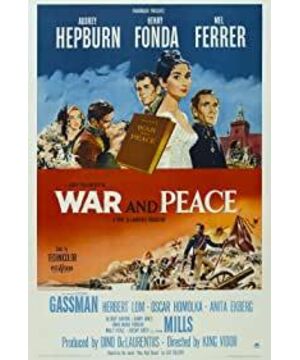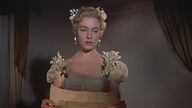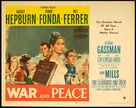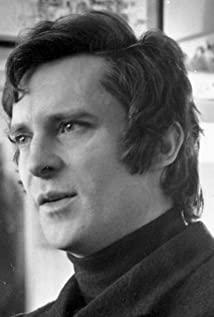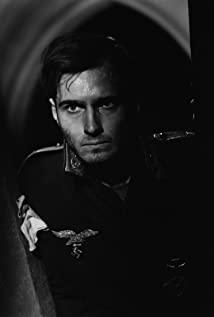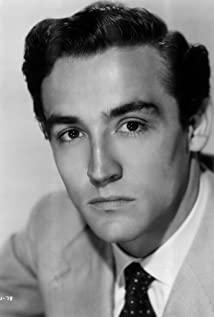I have long known that this work revolves around four families in the Russian upper class during the Russo-French War, and the young people of the four families are intricately connected, and there are many characters. So I paid special attention to the relationship between names and characters, for fear that I could not remember and hinder my understanding of the plot.
To sort it out: Natasha likes Pierre, but Pierre is married to her cousin Elena. Elena married Pierre only because he inherited a large estate and cheated on Dolokhov after marriage. Pierre's friend Andre joined the war in pursuit of fame and neglected his wife Liz. He didn't regret it until Liz died in childbirth, leaving behind his son Koya. Later, Andrei and Natasha fell in love. During Andrei's long trip, Irina's brother Anatoly seduced Natasha. He was actually a married playboy. Fortunately, Natasha's best friend Sonia and Pierre stopped in time. Sonia was deeply in love with Natasha's brother Nicholas, but Nicholas ended up marrying Andre's sister, Mary. Natasha also had a younger brother named Petya, who unfortunately died in the war. Andre died, and after the war, Natasha and Pierre came together. The four families refer to the respective families of Natasha, Pierre, Irina, and Andre.
To be honest, I don't quite understand the marriage and love situation between these young people, especially Natasha's emotional experience, and the relationship between the title "War and Peace". For example, when Andre traveled far, Natasha was easily seduced by Anatoly and decided to run away with him, whether war or peace would happen. It was Natasha's frivolous nature that caused this misfortune, not Andre's going to war. Because the war is going on vigorously, the love between these sons and daughters behind the war sometimes makes me feel very meaningless.
At first, the attitude of these noble young men and women towards war really made me angry, seeing it as fun or indifferent. But as the artillery fire approached Moscow, where they lived, the impact of the war on the lives of all Russians became more and more important. Natasha also began to understand the cruelty of the war. She even persuaded her family to give up furniture and empty the carriage for the wounded when fleeing. ride. The righteous deeds of the Rostov family were touching, and it also allowed me to see the growth of a little girl who was originally ignorant in the war.
The war also contributed to a change in Pierre's inner world. Originally, he was a young nobleman who was confused about life and wasted his time. On the battlefield, he understood how fragile life is, and he witnessed the brutality of the French army. Finally, he became a hero who defended his home and country and voluntarily stayed in Moscow. Pierre's heart should not be empty anymore, because emptiness is a trouble that comes only in peacetime after having enough food and clothing.
I am sure I will be saddened by the death of the soldier with a puppy whom Pierre knew after his capture. Just because they entered other people's woodlands to cut firewood, they were assigned to the army, which shows that the rule of Tsarist Russia was quite bad. Luckily it was me who joined the army, not my brother, who has five children and I have only one wife. This self-report is not so much optimistic, it is better to talk about his situation, and all he can do is to find ways to give himself a little psychological comfort. Therefore, this seemingly optimistic person did not make me realize the benefits of being open-minded at all, but made me even more sad. This poor man was shot and killed by French soldiers in the snow. His puppy lay on top of him and refused to leave. This is my biggest tear. I wonder if the cross he drew on his chest before he died was out of fantasy about God?
The patriotic spirit of the Russians in the movie shocked me. They would never surrender. Before evacuating every city and village, they had to turn them into ruins and scorched earth. They would never leave any resources for the French army, so bloody. nationality! And what Andrei's father said to him: Your old father will be sad if you die on the battlefield, but I'll be ashamed of you if you don't behave like a son of the Pokonski family . From here I saw the belief of a decent Russian aristocrat that fighting to the death for the country is an honor. Natasha's younger brother Petya insisted on joining the army. Although it contained a certain degree of innocence and impulsiveness, it was enough to illustrate the general loyalty of young people to the country.
Young people voluntarily donate their youth and blood to the country, but my heart aches for such a dedication. My strongest feeling after watching this movie is that war is really boring. Apathetic and greedy politicians play war, and countless civilians die for it, but they themselves pay very little. But what did they get? Look at the lesson of Napoleon's defeat, coming in a hurry and leaving in a daze, isn't this self-rewarding, harming others and harming yourself? On the contrary, General Kutusov would say "I wouldn't do it for ten Frenchmen for one Russian soldier" and is the real pillar of the country. Tens of thousands of French soldiers lived thousands of miles away from home, suffered from hunger and cold, and finally died in a foreign country. An intruder, but not a victim.
View more about War and Peace reviews


